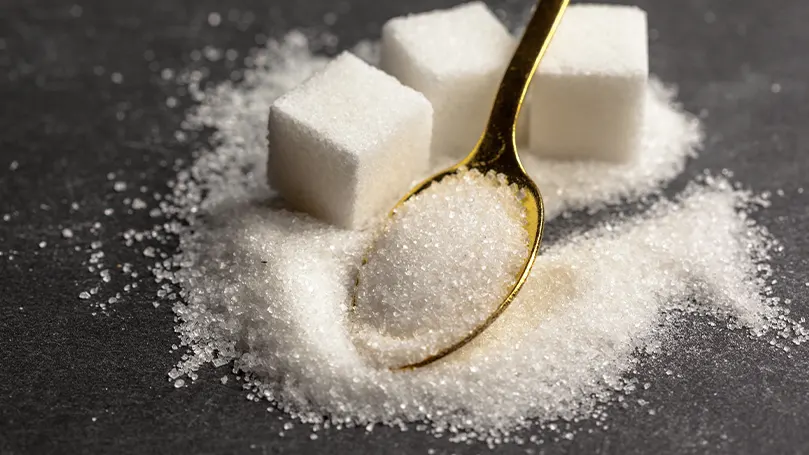Low fibre, high saturated fat and high sugar intake all play a part in poor sleep and having less deep sleep. Eating too much close to your bedtime is not ideal, it doesn't just include eating sugar. It also includes junk food, spicy foods, fried food and more. It is recommended to stop eating 2-3 hours before you go to bed. During that time, your body can digest the food before you fall asleep. If you know that it will be a late night eating dinner, then increase your calorie intake for lunch and have something lighter for dinner. A good snack to have is a small portion of a no added sugar yoghurt or cottage cheese and fresh fruit.
Does chocolate cause nightmares?
In short, yes they can. However, this does not mean that every time you have sugar before bed you will have a nightmare. Eating chocolate can keep your brain active at night and that is when you are more likely to have a bad dream. There is a slight connection between having sugar and nightmares, but it has the ability to enhance your dreams. It could go in the direction of having a really good dream, although, there is the chance of it being really bad too.
Not only is chocolate high in sugar, but it also contains caffeine which is known to keep you awake. It can give you a boost of energy right before you need to go to sleep. Chocolate should be avoided at night if you want a good night's rest.

Does sugar actually make you hyper?
Sugar making you hyper is in fact a myth. It may seem as if it has the effect of being hyper, but it provides the same amount of energy as other carbs. When you consume sugar it can give you an initial burst of energy, but not hyperactivity. Processed sugar causes blood sugar spikes, and the pancreas releases insulin to take sugar to cells to give them fuel. In turn, you will get a rush of dopamine.
The sleep doctor found that even seeing a sugary treat will stimulate the brain's reward system and release dopamine. Therefore, it is able to make you feel a sense of happiness and excitement rather than actually making you hyper.

How does sugar affect the body?
If you have a sweet tooth it can come with some negatives, one being your sugar cravings. This causes you to increase your sugar consumption which can lead to high blood sugar levels. When this happens, you will feel a burst of energy that will last 30 minutes to an hour but once that is over you will have a sugar crash.
You will start to feel as if you need more sugar to keep you awake until it is time to go to bed. However, too much sugar before bed will make you too alert to sleep. Blood sugar levels will zigzag throughout the day, depending on your sugar consumption, making it difficult to fall asleep and also leading to poor sleep quality.

The side effects of a lack of sleep include a rise in the hunger hormone ghrelin and the stress hormone cortisol. Both of these will increase the desire to eat junk food, so you will be wanting to have more sugar the following day. It is a vicious cycle that you can be involved in if you do not change your habits. Having more junk food, saturated fats and refined sugar can become addictive so it is better to cut them out where you can.
Eating sugar leads to long-term effects on your body. Firstly, there is a chance that it can lead to weight gain due to any excess glucose being stored as fat in the body. Too much weight gain can cause obesity which can make you more prone to heart disease.
Another factor you may experience is a chronic inflammation which is linked to the increase of the stress hormone cortisol – a hormone that stimulates alertness. All of which can lead to sleep disorders – one big vicious circle.
How to get rid of a sugar rush?
It is always recommended to pair sugar with food that will counteract the sugar intake. For example, healthy fats or food high in protein. Eating these with sugar helps to balance out blood glucose levels and prevents a sugar high. Foods high in protein and fibre help slow down how your body absorbs sugar.
Drinking water is essential to your daily habits, it is a good way to keep your body feeling full so you will not want sweet treats. However, it is another way to assist with a sugar rush. When you drink water it flushes through your body and helps to flush out any excess sugar.

Benefits of eating less sugar
Eating sweets at night has its negatives, so what are the positives of having less sugar?
There are a number of health benefits to consuming less sugar. It reduces the risk of experiencing long-term problems in the future. As an example, less sugar means less weight gain so a lower chance of having heart problems. Cutting down on sugar will also help with regulating blood sugar.
You will find it easier to sleep when having less sugar in your diet so it will create a good sleep cycle. It is the ideal way to adjust your circadian rhythm to be more beneficial to your lifestyle. Slow-wave sleep is the most essential stage that is necessary for restorative sleep. This is the type of sleep that helps recover from the previous day and refresh for the next.
Having a deep sleep more frequently maintains a healthy metabolism, which is harder to achieve with a high sugar intake. Better sleep and a better night's rest will have a knock-on effect on other aspects of your life. From productivity and motivation to reducing stress and keeping healthy.
When you start to choose water over drinks with added sugars, like juice or sports drinks, you will find that you are able to easily relax and wind down. Cut down on added sugars even a little bit and you will notice a difference.

Does melatonin have sugar in it?
Melatonin is a natural hormone produced in the brain and it helps with controlling your sleep cycle. It gets produced at night when it is dark and reduced during the daytime, encouraging sleep in the evening. The hormone can be taken in tablet form to add to the supply of melatonin.
The tablets contain lactose monohydrate which is a type of milk sugar that is used as a filler in medication. So, technically melatonin does have sugar in it but it is a very small amount.
Conclusion
You can eat unhealthy foods but keep to a balanced diet. Sugar has no nutritional value which is why it is better to choose fibre-rich fruit as an alternative. It is best to find a balance with the food you enjoy eating so there is a reduced chance of your blood sugar spiking.
Stick to your circadian rhythm by going to bed and waking up at the same time, and make sure you are having your three meals a day at the same time. This all helps with getting a good night's sleep and decreases how often you have poor sleep. Avoid late-night snacking as much as possible – especially having too much sugar before bed. Obviously, you don't want to go to sleep on an empty stomach so choose a healthy snack like whole grains or nuts. They will make you sleepier so you are ready to have a good night's rest.












